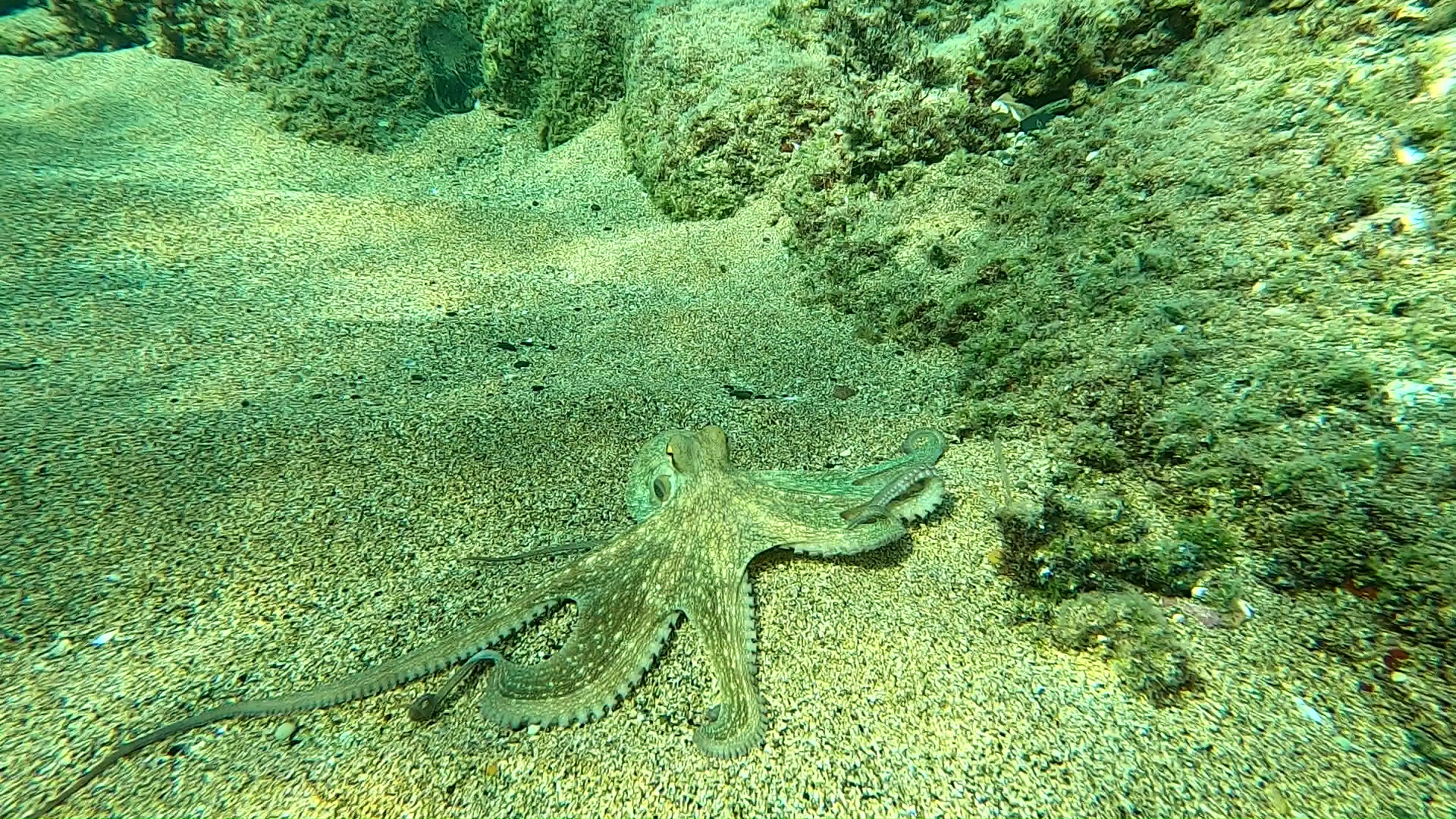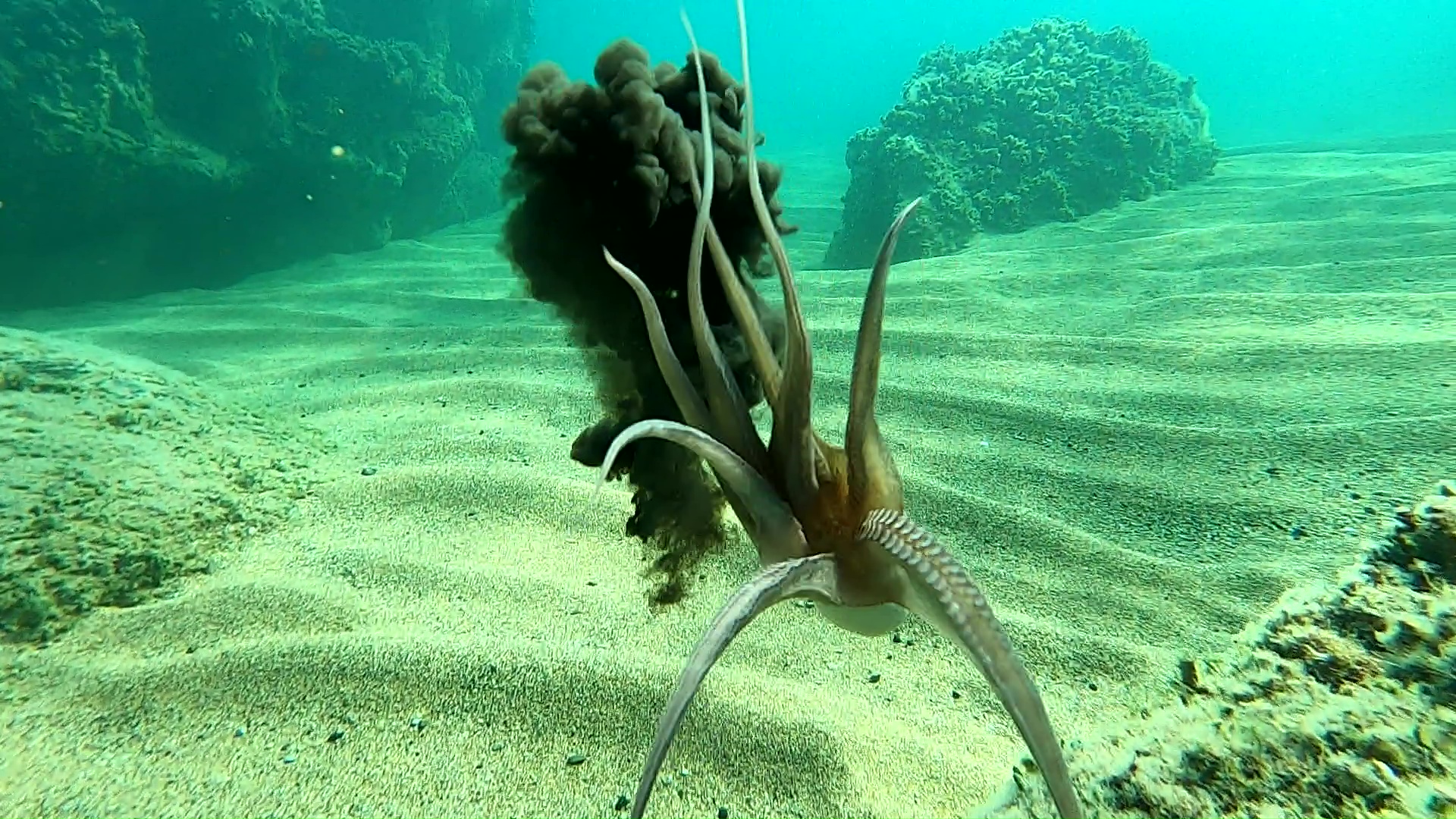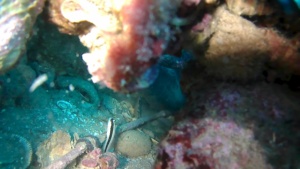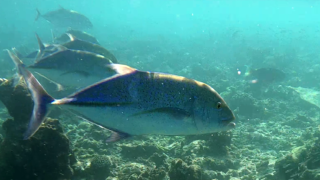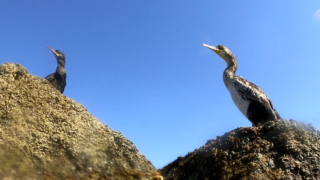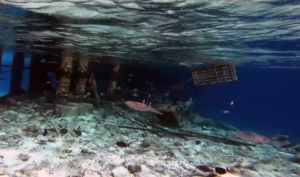This summer we found this octopus, Octopus vulgaris, quietly exploring a sandy bottom probably in search of food. This behavior is not common enough in octopuses which usually live on sea beds rich in rocks and ravines where they can hide and find food. There is also a “sand octopus” (Eledone moschata), a light-colored cephalopod very similar to Octopus vulgaris. However, it is a completely different species that lives in depth.
This video was made in apnea, snorkeling among swimmers. Our octopus is the classic Common Octopus of Mediterranean sea and he was wandering around in the sand with the people taking a bath undisturbed, except when we decided to disturb him to get some shots. We managed to get close enough to it, since it didn’t have many holes to take refuge in. At first he seemed more intrigued than frightened. In fact, octopuses are able to change shape, color and mimit in a few moments. Usually their defense weapon is mimicry, but often if they are curious and calm they take the classic pose with curled tentacles.
Obviously, after watching us for a while and becoming more envious, he resorted to other defenses such as ink and escape.
Almost all cephalopods produce and use ink as an extreme defense weapon. However, they have slightly different colored inks depending on the species; in general, octopuses secrete black ink, while that of squid and squid is dark blue and that of cuttlefish is brown.
Spraying ink to escape the predator is a defense that almost always works. in fact, the ink not only makes the octopus disappear from the sight of the predator but also has the ability to confuse and stun it. In fact, the ink contains an enzyme called tyrosinase which, when sprayed into the attacker’s eyes, causes irritation and visual difficulties. According to some studies, the substance would also be able to inhibit the smell and taste of predators, making it more difficult to identify the octopus.o.
https://www.focus.it/ambiente/animali/10-cose-che-forse-non-sai-sui-polpi
https://it.wikipedia.org/wiki/Octopus_vulgaris
https://it.wikipedia.org/wiki/Eledone_cirrhosa
Gallery
 English
English Italiano
Italiano
